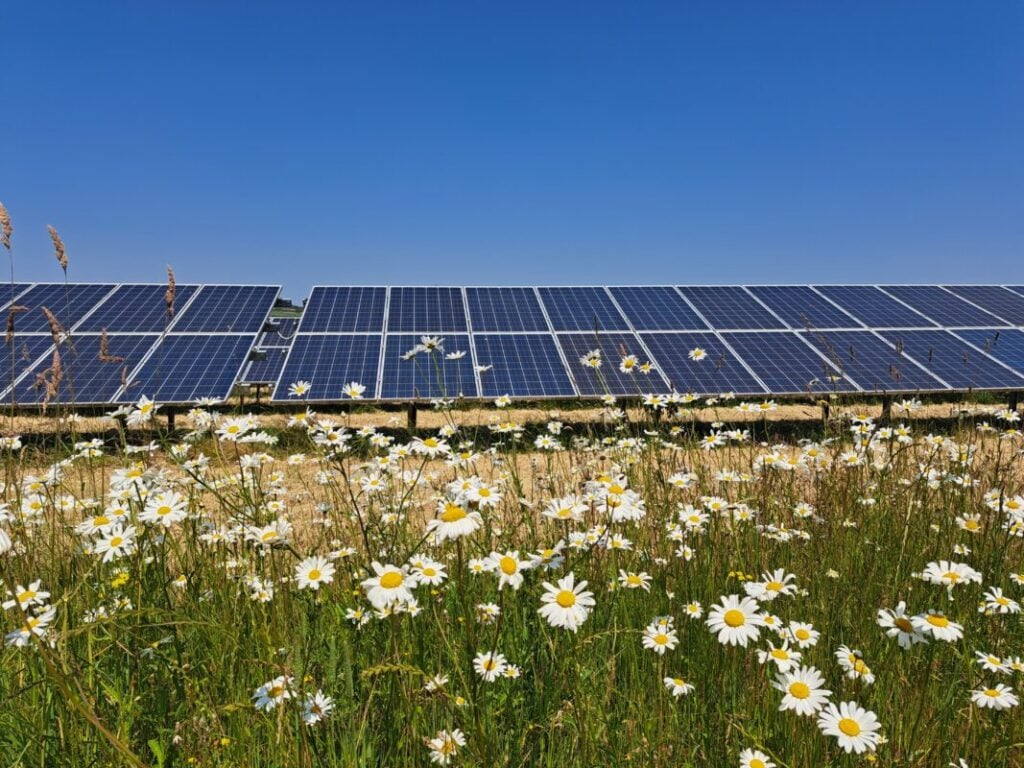
Evolution Power has successfully appealed the rejection of planning consent for a solar plus storage proposal in North Hertfordshire.
The Wandon End Solar project will combine 49.9MW of solar generation capacity with a co-located battery energy storage system (BESS), the capacity of which Evoltion Power has not revealed at this time. Of the 49.9MW export and import capacity the project has been approved for, 35MW will be used to supply the national electricity grid, while the remaining capacity will be earmarked for export to local large demand electricity users.
North Hertfordshire Council’s Planning Control Committee denied planning permission for Evolution Power’s original proposal in July 2024, following 400 objections lodged from local residents and a planning committee meeting which local news reports described as “rowdy”. Permission was denied due to the majority of the planning committee stating that the proposals represent inappropriate planning on green belt land.
However, the denial was overturned on appeal to the Planning Inspectorate, which instead defined the proposed 45-hecatre site as being situated on “grey belt” land – a land classification that was defined in planning policy several months after the original planning application was rejected. The grey belt land classification, defined in December 2024, offers less restrictive stipulations for planning approval than Green Belt land, and refers to land that sits within the green belt that is considered to be underused, of poor environmental quality, or has been previously developed on.
While both parties disputed whether the land proposed for the Wandon End Solar project should be classified as grey belt land, in the appeal document, planning inspector Alison Partington concluded that the land proposed would constitute grey belt land and therefore Evolution Power’s proposals would not constitute inappropriate development in this area.
Additionally, Partington highlighted several other key features of the scheme leading to the decision to grant planning approval, including the inclusuion of co-located battery storage, to which she states she gave “significant weight” as well as “the proposal’s use of an available grid connection which means it would be able to start delivering energy within a short period of time”.
Matthew Sharpe, senior director at planning and development consultancy Quod, served as the Planning and Green Belt witness during the appeal process. In a post on LinkedIn, he commented that this appeal decision will serve as a useful precedent for future interpretations of the definition of grey belt land, adding that he is “delighted for the Evolution Power team, and looking forward to the site coming forward and contributing to the UK’s urgent renewable energy needs.”
Conor McNally, director of Evolution Power, said that the firm is pleased to have received planning consent for the development, adding: “As a company we have taken the decision to target large transmission connected projects and have worked extensively with multiple landowners over the past four years to contract the thousands of acres of land required for these projects.”
Evolution Power is currently awaiting a final planning decision on another major solar plus storage development, the Stonestreet Green solar farm and energy storage project. This development, which has a solar generation capacity of 165MW and 99.9MW export capacity, was accepted for examination under the Nationally Significant Infrastructure Project (NSIP) regime in July of last year; a final decision on if a development consent order will be granted for the project is expected in November 2025.

